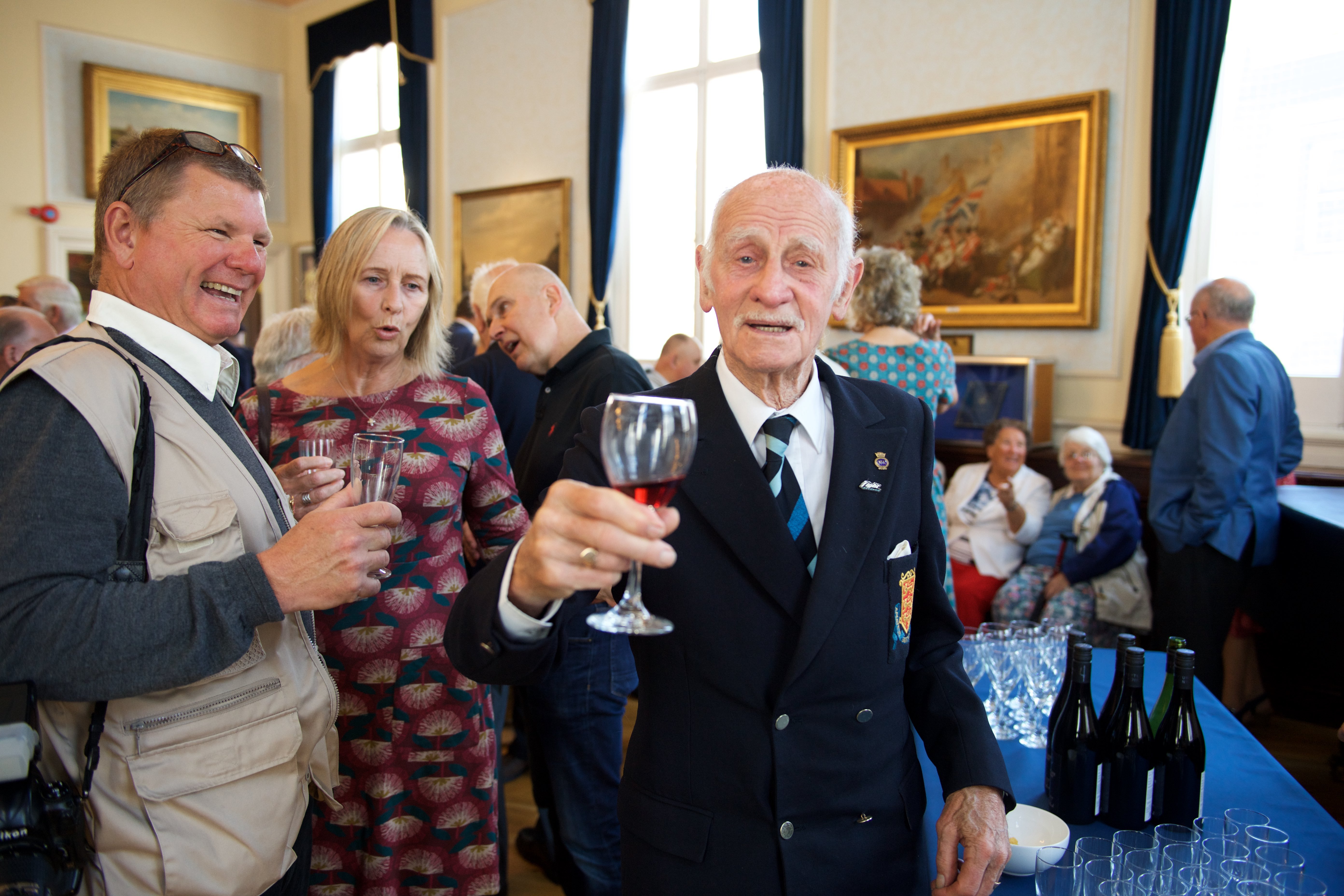In the height of ‘the bad year’, food supplies were dwindling in the Island and for some the situation was turning grave. But Mr Dolbel, now 94, says he was one of the lucky Islanders. The then 19-year-old lived in St Ouen with his family, who had some land on which to grow their own crops, and they ‘bartered and borrowed’ what they could to feed the family.
‘For people living in St Helier it was much worse,’ said Mr Dolbel.
So the first arrival of SS Vega in Jersey on 30 December 1944 – 75 years ago today – would have been a welcome sight. Many Islanders were living off the most meagre of rations and a leaked letter from Jersey to the Bristol Evening World newspaper on 5 December 1944 underlined some of the perils Islanders faced.
Black market prices for basic food items were revealed – one egg would set Islanders back £10 in today’s currency, and half a pound of butter cost 14 shillings – the equivalent of about £50.
Following the heroics of the Allied forces during the D-Day landings in 1944, supply lines to the Channel Islands, which had previously been linked with France, were cut.

Jersey’s Bailiff, Alexander Coutanche, foresaw serious issues in the Island and drafted a letter to German commanders, saying that they had a duty to ‘feed Islanders or leave’. The Germans responded by playing hard ball.
Speaking from his St Helier home, Mr Dolbel said: ‘I remember everyone was waiting for news of the Vega. We expected it to arrive before Christmas and when it did eventually come it must have been a Godsend for people in town. I remember I fought like hell for my parcel. As we saw the parcels coming in we could not wait to open them. There were things like coffee and Klim [powdered milk] that we had not seen for years.’
It had been announced, in this newspaper, on 8 December 1944 that help was on its way. But SS Vega was delayed and did not leave Lisbon in Portugal until 20 December and stopped first in Guernsey on 27 December.
Mr Dolbel added: ‘We managed in St Ouen quite well, looking back, but you hear stories of how bad it was in town. I can remember more than once when I would go boxing training three times a week at Windsor Boxing Club on Windsor Road and my meal would be a beaten egg – that’s it.
‘But I remember some times, especially in the winter, we would see the Russians and other slaveworkers with their long-handle shovels and some kind of sacking on their feet. My father would say at dinner that he was not hungry and I would think, “That is strange”, and then I would see him go outside and put his dinner on the hedge and the Russians would take it as they went past.’
German forces threatened that if food supplies were insufficient, all Islanders, except able-bodied men, would be escorted to an area of Jersey, which would be cordoned off, and left to die.
It would take a daring trip across the Channel by a Guernseyman for the Island’s message to be heard. Captain Fred Soyon set out with papers documenting the level of starvation in the islands. Midway through his trip he was intercepted by an American submarine chaser. He was taken to Cherbourg and his papers eventually reached London. Messages from Jersey and Guernsey were then sent to the Red Cross. Part of the Jersey message read: ‘Butter stocks exhausted. Soap stocks exhausted for hospitals. No gas since September. Electricity will fail middle January.’






